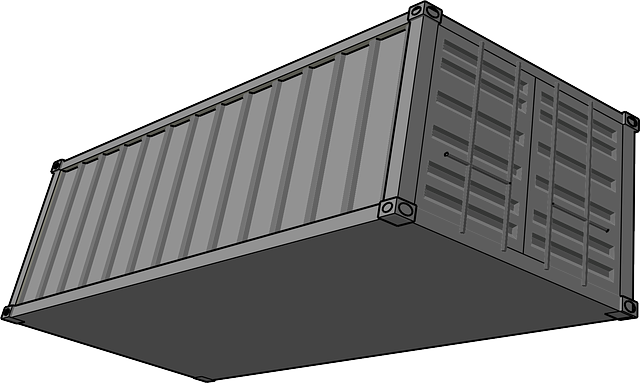Trucking cargo liability involves legal and financial responsibilities for transporting goods, with insurance policies compensating for damage, theft, or loss. Key coverage includes load-related incidents and comprehensive general liability for loading/unloading sites. Understanding policy details is vital for trucking businesses to mitigate risks, comply with regulations, and ensure smooth operations. Technology has revolutionized management through digital platforms offering real-time tracking, automated documentation, and efficient claims processing, enhancing convenience and security for international trade. While digital solutions provide significant advantages like streamlined processes and better risk assessment, challenges such as data security issues and implementation costs require attention to maximize technology's benefits in trucking cargo liability management.
In the dynamic world of logistics, managing trucking cargo liability is paramount. This article explores how technology is revolutionizing cargo insurance policies, streamlining processes that were once cumbersome and time-consuming. From understanding the basics of insurance policies to implementing digital solutions for efficient tracking, we delve into the transformative power of tech in mitigating risks and enhancing operational efficiency. Discover the benefits and challenges of adopting these innovations in trucking cargo liability management.
Understanding Trucking Cargo Liability: The Basics of Insurance Policies

Trucking cargo liability refers to the legal responsibility and financial protection associated with transporting goods via trucks. It’s a critical aspect of the logistics industry, ensuring that both carriers and shippers are safeguarded against potential risks and losses during transit. Insurance policies play a pivotal role in managing these liabilities by providing financial compensation for damage, theft, or loss of cargo.
The basics of trucking cargo insurance involve several key components. Carriers typically purchase liability coverage to protect themselves from claims related to accidents, cargo damage, or legal disputes arising from the transportation process. Policies may include specific types such as load-related coverage, which addresses issues like shifting cargo or items falling off the vehicle, and comprehensive general liability insurance that covers broader risks including property damage and personal injuries sustained at loading/unloading sites. Understanding these policy details is essential for businesses involved in trucking to mitigate their exposure and ensure compliance with legal requirements.
The Role of Technology in Simplifying Cargo Insurance Management

Technology has transformed the way cargo insurance is managed, making processes once cumbersome and time-consuming much simpler and more efficient. Digital platforms and innovative software solutions are revolutionizing trucking cargo liability management by offering real-time tracking, automated documentation, and streamlined claims processing.
These advancements enable insurance providers to offer clients a more personalized and responsive service. With technology, policyholders can access their coverage details, file claims, and receive updates on their shipments’ status conveniently through online interfaces or mobile apps. This enhances transparency and peace of mind for businesses involved in international trade, ensuring that their valuable cargoes are protected every step of the way.
Implementing Digital Solutions for Efficient Policy Tracking

Implementing digital solutions has revolutionized the way trucking cargo liability policies are tracked and managed, bringing numerous benefits to both insurance providers and shippers. Traditional manual tracking methods, often involving paper-based records and lengthy processes, have given way to efficient, real-time systems. Digital platforms enable policyholders to access their cargo insurance information readily, view policy details, and track claims status online.
This transition enhances overall efficiency by streamlining documentation, automating data entry, and reducing administrative burdens. With digital tools, policies can be updated, amended, or renewed promptly, ensuring shippers have up-to-date coverage for their trucking operations. Furthermore, advanced analytics and reporting capabilities offer valuable insights into risk assessment, enabling insurers to make informed decisions and tailor policies to meet the specific needs of different cargo types and shipping routes.
Benefits and Challenges of Using Technology in Cargo Insurance Administration

The integration of technology into cargo insurance administration offers numerous advantages for the trucking industry. One of the key benefits is enhanced efficiency; digital systems streamline processes like policy issuance, claims management, and data storage, reducing manual errors and saving time. Advanced tracking solutions allow insurers to monitor cargo in real-time, improving visibility and enabling quicker response times during emergencies or incidents involving trucking cargo liability. This technology provides a comprehensive view of the entire supply chain, facilitating better risk assessment and pricing strategies.
Despite these advantages, there are challenges to consider. Data security and privacy concerns are paramount; as more processes move online, protecting sensitive insurance information becomes critical. Additionally, ensuring interoperability between different digital platforms and systems can be complex, especially when dealing with diverse industry stakeholders. Implementing technology also requires significant upfront investment in infrastructure and training, which might be a challenge for smaller insurance providers or trucking companies with limited resources.
The integration of technology into trucking cargo liability management offers significant advantages, streamlining processes and enhancing efficiency. By leveraging digital solutions for policy tracking, insurance providers and shippers can benefit from improved accessibility, faster claim processing, and reduced administrative burdens. However, challenges such as data security concerns and the need for widespread digital literacy must be addressed to ensure a seamless transition. As technology continues to evolve, embracing innovative tools will be key to keeping pace with the dynamic nature of trucking cargo liability management.
